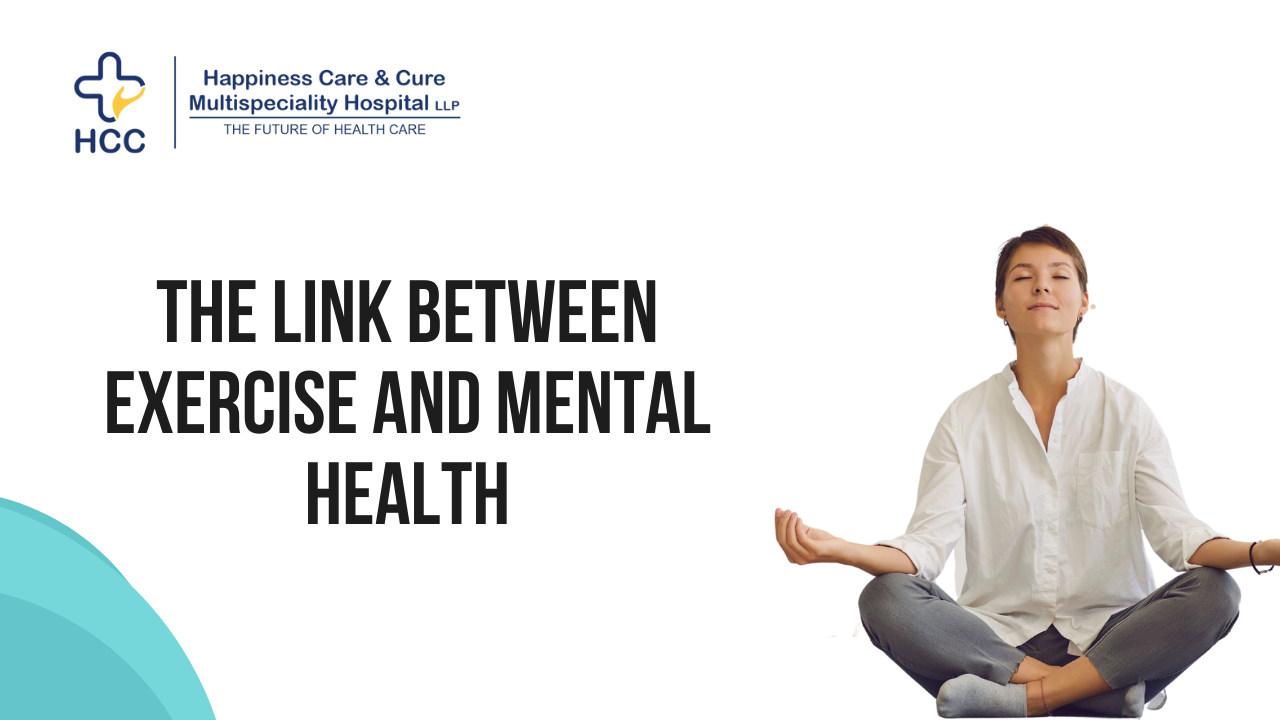
The human mind and body are profoundly interconnected, and this correlation becomes evident when examining the relationship between exercise and mental health. In today's fast-paced world, the significance of mental well-being cannot be overstated. It's imperative to understand how physical activities positively impact mental health.
Understanding Mental Health
Mental health encompasses emotional, psychological, and social well-being. It affects how individuals think, feel, and act, playing a pivotal role in handling stress, relating to others, and making choices. Common mental health issues include anxiety disorders, depression, and stress-related conditions.
Exercise and Its Impact on Mental Health
Scientific research consistently shows the significant influence of exercise on mental health. Engaging in regular physical activity triggers the release of endorphins, neurotransmitters responsible for feelings of happiness and euphoria. Various exercises, including aerobic, strength training, and yoga, have shown positive effects on mental well-being.
Specific Benefits of Exercise on Mental Health
Exercise serves as a potent tool for stress reduction, managing anxiety, and enhancing mood. It aids in combating feelings of depression and boosting self-esteem. The clarity of mind gained through exercise often leads to improved cognitive function and a sense of accomplishment.
Exercise as a Complementary Treatment
Complementing traditional mental health treatments, incorporating exercise into therapy and medication regimens has shown promising results. Many professionals advocate for the integration of exercise into mental health treatment plans due to its holistic benefits.
How Much Exercise is Needed for Mental Health Benefits?
While specific exercise guidelines exist, tailoring routines to individual preferences and needs is crucial. Consistency in physical activity, even through moderate activities, can significantly contribute to mental health improvements.
Psychological Mechanisms Behind Exercise and Mental Health
The release of endorphins during exercise influences neurotransmitters like dopamine and serotonin, promoting better mood regulation and overall mental well-being. Regular exercise positively impacts brain function, aiding in stress management and emotional stability.
Overcoming Barriers to Exercise for Mental Health
Addressing obstacles such as lack of time, motivation, or resources is essential. Strategies like setting realistic goals, finding enjoyable activities, and seeking support can help maintain consistency in an exercise routine.
Exercise and Specific Mental Health Conditions
Research underscores the efficacy of exercise in alleviating symptoms of depression, anxiety, and stress-related disorders. Additionally, it plays a preventive role in cognitive decline, promoting long-term mental health.
Creating an Exercise Routine for Mental Well-being
Establishing a sustainable exercise routine involves setting achievable goals, incorporating enjoyable activities, and maintaining consistency. Tailoring workouts to individual preferences ensures adherence to the routine.
Real-life Success Stories
Numerous individuals have experienced transformative changes in their mental health through consistent exercise. These testimonials highlight the profound impact of physical activity on mental well-being.
The Role of Community and Support
Social connections fostered through group activities or workout communities contribute significantly to mental health improvement. Being part of a supportive community enhances motivation and encourages regular exercise.
Mindfulness and Exercise
Incorporating mindfulness practices, such as meditation or mindful movement, into workouts amplifies the mental health benefits derived from exercise. Mindfulness enhances self-awareness and emotional regulation.
Conclusion
The correlation between exercise and mental health is undeniable. Regular physical activity not only improves physical fitness but also serves as a powerful tool in managing stress, enhancing mood, and fostering overall mental well-being. Prioritizing exercise as a part of a holistic approach to mental health is crucial for a balanced and fulfilling life.
FAQs
-
Can any form of exercise benefit mental health? Yes, various forms of exercise, from yoga to high-intensity workouts, have shown positive effects on mental well-being. The key is finding activities that suit individual preferences.
-
How soon can one notice improvements in mental health through exercise? While individual responses vary, some individuals experience mood improvements after just a few exercise sessions. Consistency is key for long-term benefits.
-
Is exercise alone enough to treat severe mental health conditions? Exercise can be a complementary part of treatment but may not replace professional medical help. It's crucial to consult healthcare providers for comprehensive treatment plans.
-
What if I struggle with motivation to exercise regularly? Setting small, achievable goals, finding a workout buddy, or exploring diverse physical activities can help boost motivation.
-
Are there specific exercises that are better for mental health than others? Different exercises offer unique benefits, but any activity that gets the body moving and brings enjoyment can positively impact mental health.